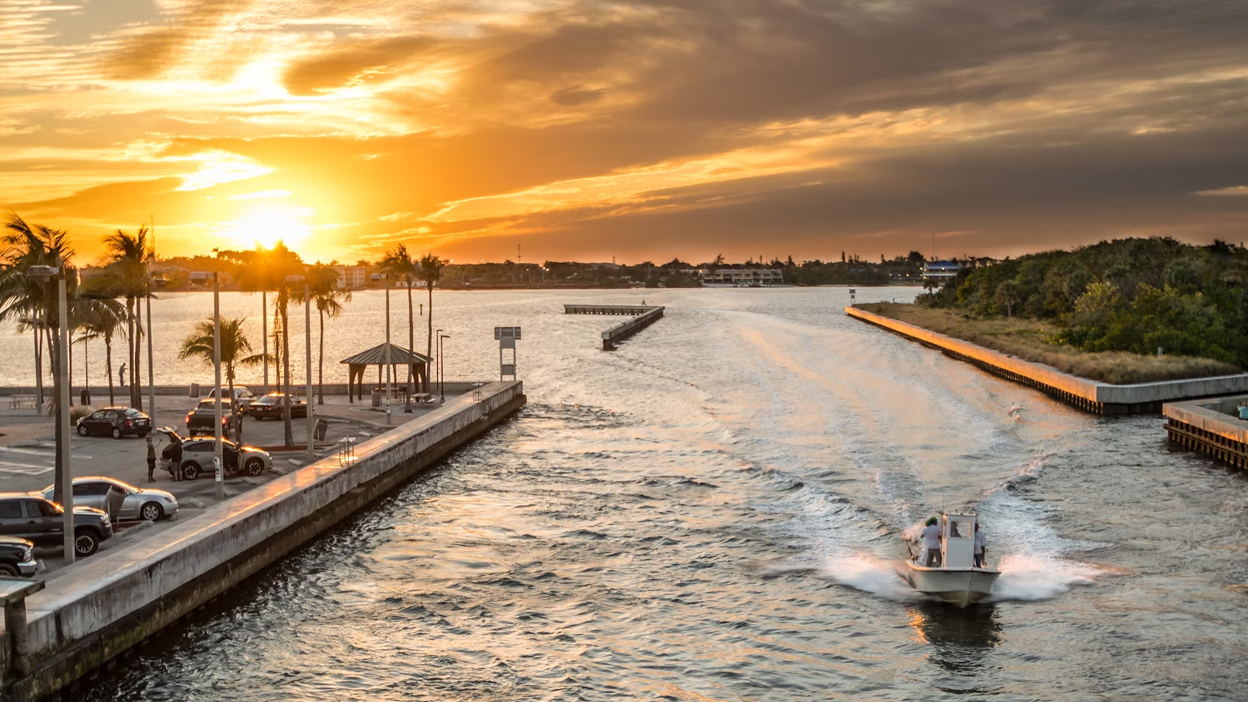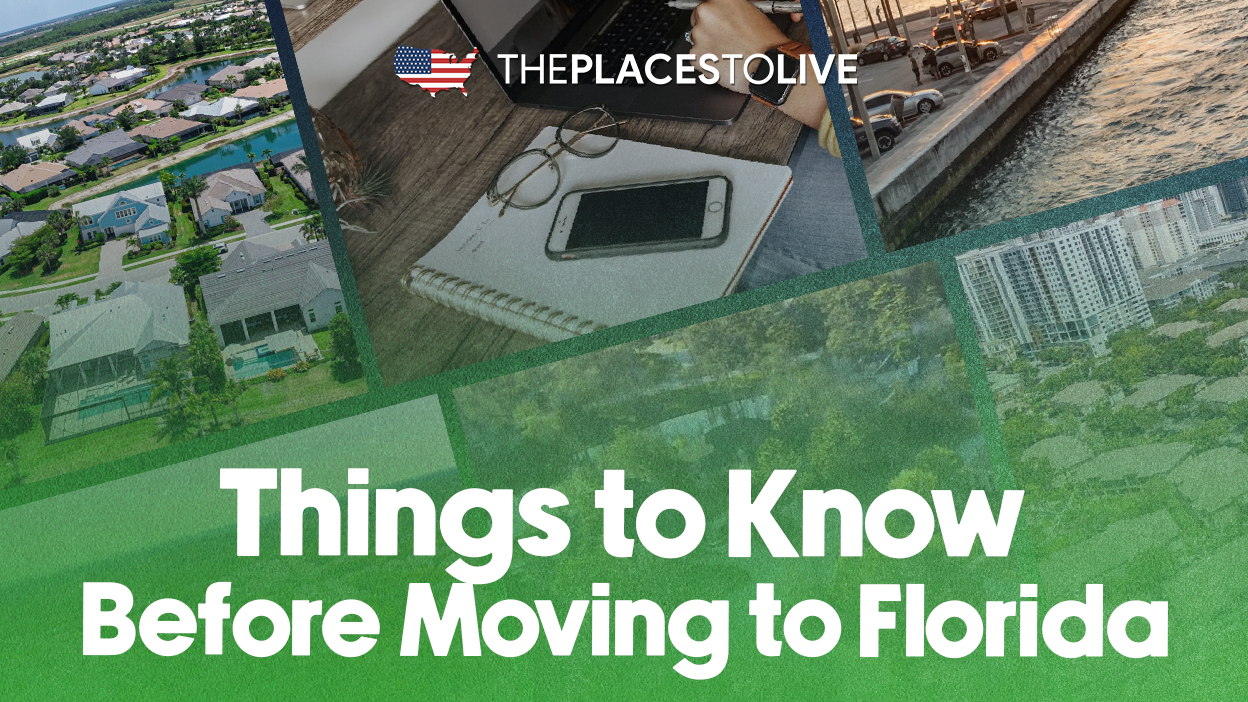Things to Know Before Moving to Florida: A Complete Relocation Guide
Moving to a new state can be exciting but also challenging. If you are considering relocating to Florida, it’s important to understand what lies ahead. The phrase things to know before moving to Florida means the essential facts and practical tips you need to make your move smooth and successful. Whether you’re drawn by the sunshine, job opportunities, or the lifestyle, knowing what to expect moving to Florida beforehand will save you time, money, and stress.
Florida is one of the most popular destinations in the US for relocation. Its warm climate, absence of state income tax, diverse population, and vibrant cities attract retirees, families, and professionals alike. From bustling urban centers like Miami to charming small beach towns, Florida offers a variety of lifestyles to match different tastes and needs. For insights on different city types to consider, see our guide on 10 Best Small Towns to Live in the US.
This comprehensive blog post covers everything from the climate and housing market to local laws and lifestyle, providing a detailed moving to Florida checklist and answering common questions you may have. If you want to prepare well and settle quickly after your move, these insights and practical suggestions will be invaluable.
Overview of Relocating to Florida

When considering relocating to Florida, it’s essential to understand some fundamental aspects about the state that affect daily life and your moving plans.
Florida’s Climate: Sunny but Humid with Hurricanes
Florida is famous for its year-round warm and sunny weather. The state mostly experiences a humid subtropical climate, meaning hot summers with high humidity and mild winters. Summer heat is often intense, making air conditioning a household necessity. The humidity can affect comfort and even health, so be ready to adjust your home and lifestyle to this environment.
A major weather factor to keep in mind is hurricane season, which lasts from June through November. Thunderstorms and tropical storms are frequent, and powerful hurricanes pose serious risks. Understanding this weather pattern is crucial for safety and insurance considerations. For more about hurricane preparedness and weather adaptation, check our related tips on 10 Most Relaxing Cities for Retirees in the US that highlight climate considerations.
Cost of Living: Affordable Housing With Some Regional Variations
Florida’s overall cost of living index stands at about 102.8, slightly higher than the national average of 100. However, this varies by location. Housing tends to be more affordable than in other coastal states like California or New York. Median home prices hover around $237,100, but prices have appreciated nearly 34% over the past decade, especially in popular metro areas along the coast. For a comparative look at affordable housing options, see our post on 10 Most Affordable Cities to Live in the US.
Groceries, healthcare, and transportation costs in Florida are generally competitive and reasonable compared to the national average, making it an attractive state financially.
Cultural Diversity and Lifestyle in Florida
One of the state’s greatest assets is its rich cultural diversity. Miami, for example, is a vibrant multicultural hub where English, Spanish, and Creole are commonly spoken. Conversely, historic towns such as St. Augustine offer a slower-paced lifestyle steeped in tradition. Numerous beach communities add to Florida’s variety, creating a mosaic of unique lifestyles.
This means your experience living in Florida can be very different depending on where you choose to settle. It also means you’ll have access to diverse social scenes, culinary options, and community activities. To explore diverse community types further, review our guide on 10 Best Suburbs to Live in the US.
Prepare Your Move with Proper Supplies
If you are planning a DIY move, getting the right moving supplies is a must. We recommend investing in a reliable moving boxes kit, like the U-Haul Moving Boxes Kit, to protect your belongings and make your packing efficient.
Things to Know Before Moving to Florida
Before making Florida your new home, certain crucial realities should not be overlooked. Here’s a detailed look at key considerations essential for anyone relocating to Florida.
Weather Considerations: Hurricanes and Humidity
Florida’s extended hurricane season runs from June to November. Every year, storms ranging from tropical depressions to full-scale hurricanes challenge residents to be prepared.
- Hurricane Preparedness: You must create an evacuation plan and stock emergency supplies (water, batteries, canned food, flashlights). Properties need storm shutters or impact-resistant windows.
- Year-Round Humidity: Expect high humidity levels even outside hurricane season. This affects personal comfort, air conditioning needs, and home maintenance as mold and mildew are common issues.
Adapting your home to this climate and staying updated on weather alerts is non-negotiable when living in Florida. For detailed advice on managing climate challenges and lifestyle adaptation, see our guide on What to Expect Moving to Florida which complements this post.
Taxes: No State Income Tax but Higher Property Costs
One of Florida’s biggest financial draws is its lack of a state income tax. This benefits working professionals and retirees alike by allowing you to keep more of your earnings and retirement funds.
However, note that property taxes and insurance premiums tend to be higher, in part due to the risk of hurricanes and flooding. Homeowners often face elevated costs to maintain adequate insurance coverage. To better understand insurance options, consider tools mentioned here and also see our 10 Best Places to Retire in the US for tips on managing retirement finances and taxes in Florida.
Housing Market: Rising Prices and Coastal Demand
Getting a home in Florida can be competitive. The median home value is about $237,100, with a roughly 34% appreciation over ten years. Coastal cities and major metros like Miami, Tampa, and Orlando experience higher demand and limited inventory, leading to rising prices.
- If buying, be ready for competition and act decisively.
- Renting offers more flexibility but prices can also be high in popular locales.
Understanding the local market before buying or renting is vital. For insights on neighborhoods and city types, see the detailed 10 Best Cities to Live in the US and 10 Best Small Towns to Live in the US.
Local Laws & Registration Requirements
Relocating to Florida involves adapting to state-specific regulations:
- Vehicle Registration & Driver’s License: You must register your vehicle in Florida and obtain a Florida driver’s license within 30 days of becoming a resident.
- Homeowners Insurance: Florida law requires certain minimum insurance coverages, especially for flood and hurricane damage. Insurance companies can be selective, so thorough research and comparison are recommended.
Preparing early for these legal changes avoids penalties and ensures compliance.
Consider using a home insurance comparison tool or reputable providers like State Farm or GEICO to find the best policies tailored to hurricane-prone areas.
Moving to Florida Checklist

A good moving to Florida checklist can reduce stress and make your transition smooth. Here’s a detailed step-by-step plan.
1. Organize Important Documents
Before moving, gather and organize your:
- IDs (driver’s license, passport)
- Medical and dental records
- Financial paperwork (bank statements, tax returns)
- Legal documents (lease agreements, wills)
Having these on hand will ease setting up services and healthcare at your new location.
2. Research Neighborhoods and Housing Options
Study different Florida areas carefully:
- Compare urban, suburban, and coastal communities.
- Consider lifestyle preferences, school districts, commute times, and amenities.
- Decide whether renting or buying suits your needs and budget.
- Visit properties in person if possible before making commitments.
For advice on diverse community types and locations, see 10 Best Places to Live in the US.
3. Secure Moving Supplies and Book Movers Early
Reserve moving boxes, packing materials, and hire professional movers or rent a truck well in advance to avoid last-minute hassles.
The U-Haul Moving Boxes Kit is a recommended product that offers durable boxes and packing aids.
4. Set Up Utilities and Services Before Arrival
Contact providers to establish:
- Electricity and water
- Internet and cable
- Trash and recycling services
Arranging these before arrival prevents inconvenient service interruptions on moving day.
5. Begin School Enrollment Promptly (If Applicable)
For families, start school enrollment early. Florida schools often require proof of residency, immunization records, and adoption of application deadlines.
6. After Arrival, Update Vehicle Registration and Driver’s License
Florida law requires new residents to:
- Register vehicles within 30 days
- Get a Florida driver’s license within the same timeframe
Delay can lead to fines or issues with driving legality.
For managing all these moving tasks, consider using organizational apps like Trello Premium or Evernote Premium to keep track of your checklist.
Lifestyle in Florida

Understanding the lifestyle in Florida will help you know what to expect and how to make the most of your new home.
Outdoor Activities Abound Year-Round
Florida’s warm climate means outdoor fun happens every day of the year. Popular activities include:
- Visiting miles of beaches along the Atlantic and Gulf coasts
- Exploring state and national parks, like Everglades National Park
- Playing golf at numerous courses
- Boating, fishing, and water sports
- Enjoying world-famous theme parks such as Disney World and Universal Studios
The active, outdoor lifestyle is a major appeal for many new residents. For related gear recommendations and outdoor living tips, check out our guide referencing REI and Patagonia products as noted here.
A Rich Tapestry of Cultures and Communities
Major cities like Miami, Orlando, and Tampa offer multicultural environments where diverse ethnicities and languages thrive. Smaller towns and coastal villages provide quieter communities with a slower pace.
Varied Paces of Life
- Urban areas: Bustling nightlife, job opportunities, and cultural events abound.
- Suburban neighborhoods: Family-oriented with schools and community parks.
- Rural/coastal communities: Peaceful and popular among retirees and those seeking a relaxed environment. For options in smaller towns or peaceful communities, see our piece on 10 Best Small Towns to Live in the US.
Hobbies and Community Engagement
Residents can find various clubs and groups for interests such as:
- Art walks and gallery openings
- Music festivals and concerts
- Sports leagues (baseball, soccer, boating)
- Nature clubs and environmental groups
What to Expect Moving to Florida
It’s important to set clear expectations when relocating to Florida to avoid surprises.
Climate Adaptation Takes Time
Getting used to Florida’s:
- Intense heat and high humidity
- Continuous need for air conditioning
- Preparation for hurricanes and severe storms (including home investments and emergency kits)
takes time and effort.
Seasonal Population Swings
Winter months bring an influx of “snowbirds” — seasonal residents from northern states — and tourists. This increases traffic, wait times, and sometimes strains local resources.
Public Services and Healthcare Quality
Healthcare facilities vary:
- Large metropolitan areas have excellent hospitals and specialized care.
- Rural or less populated counties may have limited options, requiring travel for certain services.
Job Market and Economic Opportunities
Florida’s economy centers on:
- Tourism and hospitality
- Healthcare services
- Logistics and supply chain
- Technology and construction sectors
Urban centers provide the most job openings, though wages may be lower than in northern states, and competition can be fierce.
To find employment, use platforms like Indeed Premium or LinkedIn Premium, and working with local real estate agents and relocation experts can ease your transition.
FAQs About Moving to Florida
How do I prepare for hurricane season in Florida?
- Stock essential emergency kits (water, batteries, canned food, flashlights).
- Plan evacuation routes and stay informed during storms.
- Invest in home improvements like storm shutters or hurricane-proof windows.
- Secure comprehensive flood and home insurance coverage.
What are the best cities to relocate to in Florida?
Popular cities with varied lifestyles and opportunities include:
- Miami: Vibrant, multicultural, coastal urban life.
- Orlando: Theme parks, family-friendly, strong tourism economy.
- Tampa: Growing tech and business sector, waterfront living.
- Naples: Upscale beach community, retirement-friendly.
- Jacksonville: Affordable housing, large metro area.
- St. Augustine: Historic charm, slower pace.
Learn more about city types by reviewing our 10 Best Cities to Live in the US and 10 Best Small Towns to Live in the US.
Is Florida really no state income tax?
Yes, Florida does not have a state income tax, which can result in significant savings for residents.
How do I find good schools in Florida?
- Check school ratings through public education websites.
- Visit schools if possible.
- Engage with local parent communities and online forums for firsthand reviews.
What are some common challenges when moving to Florida?
- Adjusting to humidity and severe weather conditions.
- Navigating competitive and rising housing markets.
- Managing high property insurance premiums.
- Coping with seasonal tourism influx.
- Integrating into culturally diverse communities.
Conclusion
Understanding the things to know before moving to Florida equips you for a confident and informed relocation. From mastering the climate and tackling the housing market to adapting to local laws and embracing the dynamic lifestyle in Florida, preparation is key.
Planning carefully today means enjoying your new Florida life tomorrow. Your insights can help future Floridians prepare better!
Ready to start your move? Check out the U-Haul Moving Boxes Kit and get packing the smart way!
Looking for home insurance? Compare rates from State Farm and GEICO for the best storm protection.
Stay on top of your move with Trello Premium — your personal moving checklist assistant.
Embrace Florida’s outdoors with gear from REI and Patagonia, perfect for your new lifestyle.





